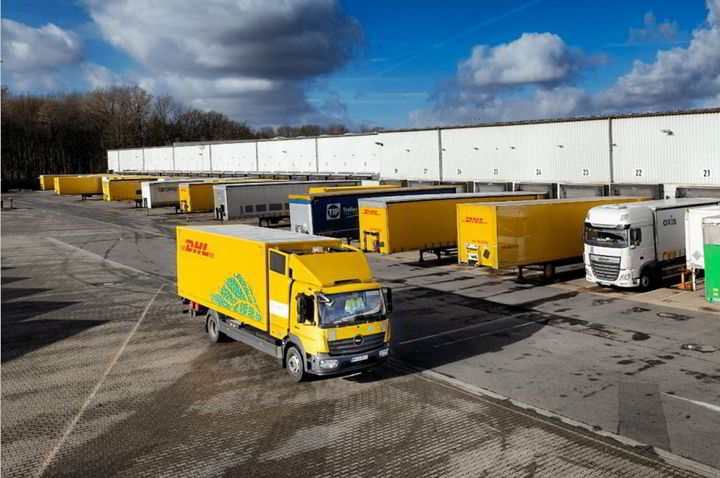Shell’s pay-as-you-go hydrogen road freight scheme receives its full complement of H2 trucks

Shell's pay-as-you-go hydrogen trucking business has finally received the full complement of 25 H2 trucks that it ordered from the Paul Group last year for its pay-as-you-go scheme launched in August last year. The oil major plans to lease the PH2P fuel-cell electric trucks -- which are built on a Mercedes Benz Atego chassis -- to customers in Germany for a monthly fee, in an effort to drive take-up of these zero-emission heavy vehicles despite high upfront costs. Logistics firm DHL is an early client of the Shell Hydrogen Pay-Per-Use scheme, leasing two of the trucks in Cologne as part of a year-long pilot to assess hydrogen-powered heavy-duty transport for its operations.
"Especially in land transport, where no alternative drive solution has yet been established, it is important for us to test various sustainable solutions in the spirit of a technology-open approach," said Thomas Vogel, DHL Freight's CEO for Germany, Austria and Switzerland. "In addition to battery-electric trucks, this also includes hydrogen vehicles, which particularly score points with their range and quick refueling on longer journeys. Ultimately, our aim is to identify the best technology and drive mix in order to achieve our goal of net zero emissions in logistics by 2050."
Other customers of the Shell scheme include building materials manufacturer and construction service provider Bachl; logistics company Emde in its operations for fashion retailer C&A; and food wholesaler Troiber, which like DHL is also testing other technologies such as battery-electric vehicles (BEVs) and e-fuels. Article continues below the advert Upon the scheme's launch on 1 August last year, Shell's then vice-president for hydrogen, Paul Bogers, said: "To kick-start the transition to zero emission trucking there are so many puzzle pieces that need to fit together that it is overwhelming for our customers.
"A pay-per-use model can be a great way to spread the risk and allow early adopters to get real world experience without having to bet the company on a single technology." The monthly fee includes "scheduled and unscheduled maintenance is available as needed, reducing operational and performance risks, as well as 24/7 customer support". While fuel-cell electric passenger cars are lagging behind battery electric vehicles, with Shell closing down its light-duty refuelling stations in the US and the UK, hydrogen is expected to play a bigger role in decarbonising heavy-duty transport.
Fuel-cell trucks have a longer range than battery electric equivalents, as well as far faster refuelling times compared to charging -- however, they are expected to be more expensive to run.
"Hydrogen trucks can already directly replace diesel trucks without adjusting the route planning, while refuelling the energy for the next 500km of travel in just ten minutes," said Bernhard Wasner, CEO of Paul Group.